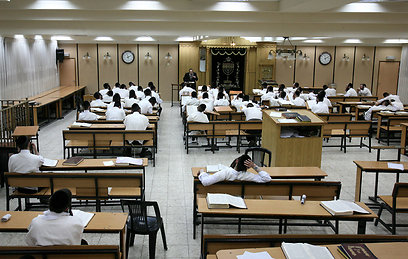The current newsletter of the US-Israel Binational Science Foundation has taken note of the early support that Ido Erev and I received from them, and I'm very happy to acknowledge it. I wonder how widespread are binational science foundations?
Alvin Roth's New Book and NPR Interview
"Roth is a pioneer in the field of game theory and experimental economics and in their application to the design of new economic institutions. Early in his career, he and Prof. Ido Erev from the Technion received BSF funding on three different occasions for their work on how reinforcement learning can make useful predictions in experimental games."
They also quote me in an NPR interview, about kidney exchange, saying
“I kind of think of economists as being helpers here,” he said. “We have some ideas, but we don't do any of the surgeries.”
*************
The NSF also takes note of the support it has given to Nobel laureates, and I am certainly grateful for the support I received:
NSF-funded Nobel Prize winners in science through 2015
Alvin Roth's New Book and NPR Interview
"Roth is a pioneer in the field of game theory and experimental economics and in their application to the design of new economic institutions. Early in his career, he and Prof. Ido Erev from the Technion received BSF funding on three different occasions for their work on how reinforcement learning can make useful predictions in experimental games."
They also quote me in an NPR interview, about kidney exchange, saying
“I kind of think of economists as being helpers here,” he said. “We have some ideas, but we don't do any of the surgeries.”
*************
The NSF also takes note of the support it has given to Nobel laureates, and I am certainly grateful for the support I received:
NSF-funded Nobel Prize winners in science through 2015
ECONOMICS
1970 – Paul A. Samuelson*
1972 – Kenneth J. Arrow*
1973 – Wassily Leontief
1975 – Tjalling C. Koopmans
1978 – Herbert A. Simon
1980 – Lawrence R. Klein
1981 – James Tobin
1982 – George J. Stigler
1983 – Gerard Debreu
1985 – Franco Modigliani
1986 – James M. Buchanan Jr.
1987 – Robert M. Solow
1992 – Gary S. Becker
1993 – Robert W. Fogel, Douglass C. North
1994 – John C. Harsanyi, John F. Nash*
1995 – Robert E. Lucas
1997 – Robert C. Merton
1998 – Amartya Sen
1999 – Robert A. Mundell
2000 – James J. Heckman, Daniel L. McFadden
2001 – George Akerlof, Michael Spence, Joseph Stiglitz
2002 – Daniel Kahneman, Vernon Smith
2003 – Robert C. Engle, Clive W. Granger
2004 - Finn E. Kydland, Edward C. Prescott
2005 – Robert J. Aumann, Thomas C. Schelling
2006 – Edmund S. Phelps
2007 – Leonid Hurwicz, Eric Maskin and Roger Myerson
2008 – Paul Krugman
2009 – Elinor Ostrom, Oliver E. Williamson
2010 – Peter A. Diamond, Dale Mortensen
2011 – Thomas J. Sargent, Christopher A. Sims
2012 – Alvin E. Roth and Lloyd S. Shapley
2013 – Eugene F. Fama, Lars Peter Hansen, Robert J. Shiller
2014 – Jean Tirole
2015 – Angus Deaton
1970 – Paul A. Samuelson*
1972 – Kenneth J. Arrow*
1973 – Wassily Leontief
1975 – Tjalling C. Koopmans
1978 – Herbert A. Simon
1980 – Lawrence R. Klein
1981 – James Tobin
1982 – George J. Stigler
1983 – Gerard Debreu
1985 – Franco Modigliani
1986 – James M. Buchanan Jr.
1987 – Robert M. Solow
1992 – Gary S. Becker
1993 – Robert W. Fogel, Douglass C. North
1994 – John C. Harsanyi, John F. Nash*
1995 – Robert E. Lucas
1997 – Robert C. Merton
1998 – Amartya Sen
1999 – Robert A. Mundell
2000 – James J. Heckman, Daniel L. McFadden
2001 – George Akerlof, Michael Spence, Joseph Stiglitz
2002 – Daniel Kahneman, Vernon Smith
2003 – Robert C. Engle, Clive W. Granger
2004 - Finn E. Kydland, Edward C. Prescott
2005 – Robert J. Aumann, Thomas C. Schelling
2006 – Edmund S. Phelps
2007 – Leonid Hurwicz, Eric Maskin and Roger Myerson
2008 – Paul Krugman
2009 – Elinor Ostrom, Oliver E. Williamson
2010 – Peter A. Diamond, Dale Mortensen
2011 – Thomas J. Sargent, Christopher A. Sims
2012 – Alvin E. Roth and Lloyd S. Shapley
2013 – Eugene F. Fama, Lars Peter Hansen, Robert J. Shiller
2014 – Jean Tirole
2015 – Angus Deaton
* Received NSF support after receiving Nobel Prize.











